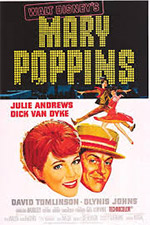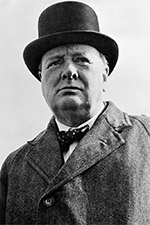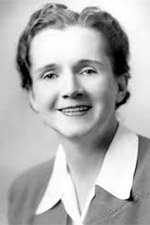Entertainment
Movies
 A Hard Day’s Night
A Hard Day’s Night
Goldfinger
Mary Poppins
My Fair Lady (Oscar for Best Picture)
Hush, Hush Sweet Charlotte
A Fistful of Dollars
Becket
TV
Jeopardy debuted on NBC.
Bewitched and Jonny Quest debuted on ABC.
The Beatles performed for the first time in the U.S. on the Ed Sullivan Show.
Rudolph the Red-Nosed Reindeer debuted and will eventually become the longest-running Christmas TV special in history.
Broadway
Hello, Dolly
Funny Girl
Fiddler on the Roof
What Makes Sammy Run?
Golden Boy
Books
.jpg) Herzog by Saul Bellow
Herzog by Saul Bellow
Little Big Man by Thomas Berger
Charlie and the Chocolate Factory by Roald Dahl
The Giving Tree by Shel Silverstein
Games People Play by Eric Berne
Why We Can’t Wait by Martin Luther King Jr.
Music
I Want to Hold Your Hand by The Beatles
Pretty Woman by Roy Orbison
House of the Rising Sun by The Animals
A Hard Day’s Night by The Beatles
I Feel Fine by The Beatles
The Rolling Stones released their first album, The Rolling Stones.
Simon and Garfunkel made their first recording for Columbia Records, Monday Morning, 3 AM.
Sonny and Cher began performing together as Caesar and Chloe.
Sports
The 1964 Winter Olympics were held in Innsbruck, Austria, and the 1964 Summer Olympics were held in Tokyo, Japan.
The St. Louis Cardinals defeated the New York Yankees to win the 1964 World Series.
In football, the AFL champion was the Buffalo Bills; the NFL champion was the Cleveland Browns.
Cassius Clay (later to become Muhammad Ali) defeated Sonny Liston to win the World Heavyweight Championship in boxing.
Richard Petty won the Daytona 500; A.J. Foyt won the Indianapolis 500.
World
 France and China established diplomatic relations.
France and China established diplomatic relations.
Winston Churchill retired from the House of Commons at the age of 89.
The Shakespeare Birthplace Trust opened the Shakespeare Center, housing its library and research center, in Stratford-on-Avon, England.
Nelson Mandela was sentenced to life in prison in South Africa.
Malawi received its independence from the United Kingdom.
U.S.
Jan. 8 - In his first State of the Union address, President Lyndon Johnson declared a “War on Poverty.”
Jan. 11- Surgeon General Luther Terry reported for the first time that smoking may be hazardous to one’s health.
Jan. 23 - The 24th amendment to the Constitution, prohibiting the use of poll taxes in national elections, was ratified.
Feb. 2 - Homestead United Presbyterian Church, Homestead, Pa., was formed.
March 9 - The first Ford Mustang rolled off the assembly line at Ford Motor Company.
March 15 - Richard Burton and Elizabeth Taylor marry (for the first time).
March 27 - The Great Alaska Earthquake, magnitude 9.2, struck south central Alaska, killing 125 people and inflicting massive damage to the city of Anchorage.
April 20 - President Lyndon Johnson and Soviet Premier Nikita Khrushchev simultaneously announced plans to cut back the production of materials for making nuclear weapons.
April 22 - The 1964 New York World’s Fair opened.
May 1 - The first computer program written in BASIC (Beginners’ All-purpose Symbolic instruction Code) was run.
July 2 - President Lyndon Johnson signed the Civil Rights Acts of 1964 into law, abolishing racial segregation in the United States.
Aug. 7 - The Vietnam War continued to escalate; Congress passed the Gulf of Tonkin Resolution, giving President Johnson broad war powers to deal with North Vietnamese attacks on U.S. forces.
Sept. 21 - The Clifford E. Barbour Library at Pittsburgh Theological Seminary was dedicated.
Sept. 24 - The Warren Commission Report, the first official investigation into the assassination of President John F. Kennedy, was published.
Oct. 14 - Dr. Martin Luther King Jr., American civil rights movement leader, became the youngest recipient of the Nobel Peace Prize.
Nov. 3 - Incumbent President Lyndon Johnson defeated challenger Barry Goldwater in the 1964 presidential election.
Notable Births
Nicolas Cage (actor)
Sandra Bullock (actor)
Glenn Beck (talk show host)
Lenny Kravitz (musician)
Wynonna Judd (musician)
Jeff Bezos (Internet entrepreneur)
Michelle Obama (First Lady)
Russell Crowe (actor)
Stephen Colbert (satirist)
Notable Deaths
 Ian Fleming (James Bond author)
Ian Fleming (James Bond author)
Cole Porter (composer)
T.H. White (author)
Rachel Carson (environmentalist)
Flannery O’Connor (author)
Jim Reeves (musician)
Douglas MacArthur (Army general)
Herbert Hoover (31st President of the U.S.)
Pierre Cartier (jeweler)
Jawaharlal Nehru (Prime Minister of India)
